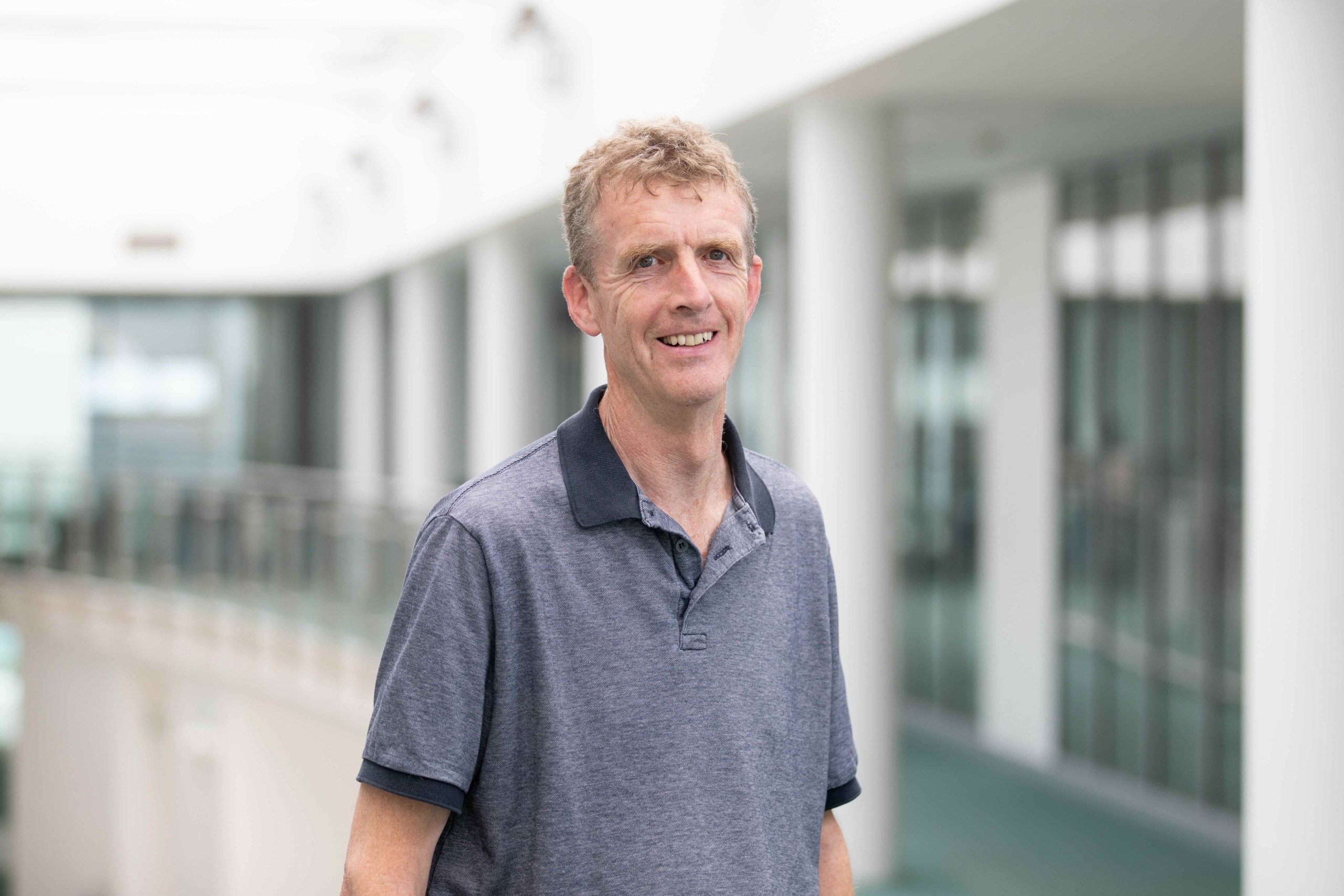Closing date: 17/11/2025
Clinical Research Training Fellowship: Identifying epigenetic regulatory mechanisms conferring chemotherapeutic drug resistance in oesophageal adenocarcinoma
Lead Supervisors: Prof. Andrew Sharrocks
Co-Supervisors: Mr Arfon Powell, Prof. Yeng Ang, Dr Mudassar Iqbal
Applications Deadline: 12:00pm Monday 17th November 2025
Interviews: Week commencing 12th January 2026
Start date: September 2026
Project Keywords: Oesophageal adenocarcinoma, epigenetic profiling, transcription factors
Research Opportunity: Clinical Research Training Fellowship leading to the award of PhD
Project Outline
Oesophageal adenocarcinoma (OAC) is a highly aggressive cancer with poor prognosis, and its incidence has been rising for decades. Despite surgery and chemotherapy, such as the FLOT regimen (Fluorouracil, Leucovorin, Oxaliplatin, and Docetaxel), resistance to treatment is a major challenge, leading to relapse and poor long-term survival, with five-year survival rates below 20%. While DNA mutations play a role in resistance, epigenetic alterations in gene regulatory networks have become increasingly recognised as key contributors to therapy evasion.
These changes enable the emergence of transient drug-tolerant cell states, which represent important potential therapeutic targets. Therefore, understanding the molecular mechanisms behind the reprogramming of the transcriptome in OAC cells under therapeutic pressure is crucial for improving treatment strategies and outcomes.
This project addresses the fundamental challenge of understanding and ultimately combatting chemotherapeutic resistance in OAC. One of the major obstacles to improving patient survival is the ability of OAC cells to survive drug treatment. We hypothesise that OAC cells undergo epigenetic adaptations, leading to the emergence of transient drug-tolerant cell populations. These transient states can emerge during treatment cycles, allowing cancer cells to escape the effects of chemotherapy and potentially contribute to relapse. While recent studies in other cancers have suggested that such transient populations are key to resistance, it remains unclear whether these mechanisms are applicable to OAC. This project aims to investigate the epigenetic mechanisms that govern the appearance of these transient states and how they drive escape from chemotherapeutic challenge.
To achieve these aims, we will:
• Discover cell states and their regulatory chromatin landscapes as OAC cells adapt and develop tolerance to FLOT chemotherapy.
• Determine the role of newly identified key regulatory proteins in the acquisition and maintenance of transient drug-insensitive states.
• Understand the relevance of transient cell states for tumour response to therapeutic challenge and patient survival
Applications for this project are now open. Please complete your application on The University of Manchester website.
About Prof. Andrew Sharrocks (project Lead Supervisor)
Andy obtained a first class degree in Biochemistry from Sheffield University, UK, and continued his studies there to complete a PhD studying prokaryotic transcriptional control mechanisms. He subsequently continued his work on prokaryotic transcription factors in his first Postdoc position, and then moved to the Max Planck Institute in Freiburg, Germany to study eukaryotic transcriptional control mechanisms. He secured his first independent group leader position at the University of Newcastle upon tyne in 1992 and moved to the University of Manchester, UK, in 1990 where he secured a Professorship in 2002. More recently his studies have extended to studying the interplay between chromatin and transcription, and how this changes as cells differentiate or are converted into disease states such as cancer.

Key information
Before submitting an application, please ensure you have read the information below about the funding arrangements and eligibility for our Clinical Research Training Fellowships.
We also encourage you to get in contact with the lead supervisor to discuss the project and any particulars.
Further information is available on the Clinical Research Training Fellowships webpage.
The clinical fellowships are usually tenable for three years, although in certain circumstances they may be four years duration. The Fellowship covers:
- running expenses,
- an appropriate salary in line with the applicant’s current salary and grade
- full coverage of University PhD fees at the UK/home fee rate.
International Candidates
The University of Manchester aims to support the most outstanding applicants from outside the UK.
We are able to offer a limited number of bursaries to high-performing EU and international candidates, covering PhD fees only. Bursaries do not include financial support for visa/health surcharges.
We assess each EU and international candidate’s suitability for a bursary at the application and interview stages.
You must be a post-registration clinician, and ideally have a specialist post in a related subject, to apply for our Clinical Research Training Fellowships.
Applicants must hold an MBChB degree or an equivalent medical qualification. You should also hold, or be about to obtain, a minimum upper second class (or equivalent) undergraduate degree in a relevant subject. A related master’s degree would be an advantage.
It is generally expected that CRTFs will return to a training programme in the UK upon completion of their research degree.
International applicants (including EU nationals) must ensure they meet the academic eligibility criteria (including English Language) before contacting potential supervisors to express an interest in their project. Eligibility information can be found on the University’s Country Specific information page.
Applications for this programme are now open. Please submit your application on The University of Manchester application portal.
Key dates
- Applications open: Monday 6th October 2025
- Application deadline: 12:00pm Monday 17th November 2025
- Interviews: Week commencing 12th January 2026
- Start date: September 2026
Useful Links
Submit your application
Interested in applying for this opportunity? Submit your application on The University of Manchester application portal.
Clinical Research Training Fellowships
Discover our various opportunities for clinicians looking to undertake a period of PhD training in a cancer-relevant field.
Get in Touch
Contact Dr Yasmin Noori Jenaghard, Postgraduate Programme Manager.
Researcher Stories
Read first-hand experiences of from cancer scientists from across Manchester.
Why Manchester?
Find out why postgraduate students choose to study in Manchester.
A Day in the Life of a Clinical PhD Student
Watch our short video to see what it's like to be a Clinical Research Training Fellow in Manchester.





